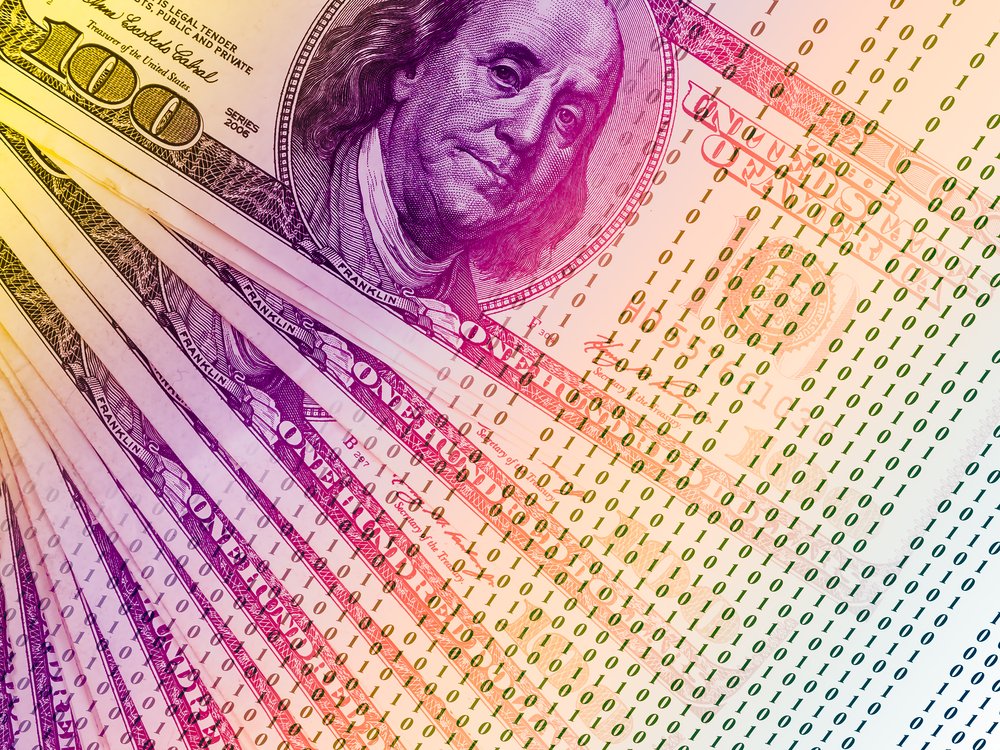This story is part of an original Techonomy series about the evolution of money.
Money. It’s everywhere. Whether it’s Floyd Mayweather showing off his endless stacks of Benjamins, or you buying a cold brew at the local coffee shop—everyone uses money. It’s such a large part of life you don’t even think about it. That’s a lot of faith to put into a piece of paper.
Back in the 13th Century, paper currency used as money in China made Marco Polo marvel: “Everybody takes them readily, for wheresoever a person may go throughout the Great Kaan’s dominions he shall find these pieces of paper current, and shall be able to transact all sales and purchases of goods by means of them just as well as if they were coins of pure gold”.

It’s remarkable that we take a piece of paper and make two giant assumptions. First, that it has value. And second, that this piece of paper will hold its value. But at the end of the day, it’s just a piece of paper.
It’s best to think of “money” as an umbrella term, similar to “transportation.” It has gone through a number of changes over time, just as we’ve evolved through a variety of modes of transport–from horses and ships, trains to cars, and to planes. Likewise, civilizations have progressed from barter to commodity-linked monetary systems (for example, one unit of money was equivalent to a certain number of grains) to country-specific currencies and banking systems like the ones we’re familiar with. Today, cryptocurrencies like Bitcoin and its offspring are simply yet another evolution of money.

Like other modern technologies– electricity, the internet, or smartphones–we take money for granted and with little thought put it in the background of our lives. But money, in fact, is mankind’s greatest innovation.
Thinking of money as a technology isn’t easy, considering that we might otherwise think of things like virtual reality, flying cars, or travel to Mars. But it’s important to remember that while technology lumbers forward in annoying fits and starts, for the most part it stays in the background, consistently saving us time and bringing efficiencies to our lives. That makes it easy to overlook.

The transition to country-specific currencies has been a long one. As recently as the early 1970’s, the U.S. dollar was backed by gold. But governments found that inconvenient, as it imposed on its leaders accountability and fiscal discipline. Enter the so-called “fiat” national currencies we use today, which are backed by nothing. Essentially, consumers trust that politicians and central bankers won’t do anything stupid to erode a respective currency’s value over time.
The problem with this approach to money is two-fold. First, that’s a lot of trust to place in any institution. Second, transacting across borders is still cumbersome.
To fully appreciate money’s role in society, it’s helpful to imagine a world without it. In a previous article, we wrote about the importance of cooperation in relation to trade. The key point was that economic growth and wealth creation are a product of cooperation. Ask yourself how you would “work” with someone without trust in the money you are receiving? Simply put, money is the grease for the entire process. The trust money brings is what allows entrepreneurs to specialize, businesses to grow, and international markets to interact. Take it away and all cooperation stops.
Any erosion of that trust can have severe consequences. Look no further than the currency manipulation which takes place in China, like when its government recently devalued the Yuan in relation to the dollar. Trust crumbled in the entire market as people questioned if the value of goods and services would remain stable across borders.
New iterations of money like Libra, Facebook’s cryptocurrency, which it hopes to launch in the next year, aim to counter such dynamics with greater predictability, and in turn trust by minimizing the amplitude of the volatility we see today’s markets. That makes it potentially powerful.
As an innovation and a store of value, money transcends cultures, borders, and demographics. Poets say music is the universal language, even though not all people enjoy the same genres. The reality is that money is the only true universal language: a $1000 bill has value, whoever you are and wherever you come from. Even ISIS, in the heat of its rejection of all Western values, eagerly hoarded U.S. currency.
Given this, it’s perfectly reasonable to expect money to evolve as it always has. This is ongoing whether it’s through digital payments, Apple Pay or blockchain-based cryptocurrencies. Currently, Bitcoin and Libra are vying to be the next stage of this ongoing evolution. While the former is defined by its security layer, the latter has legs given the enhanced stability in its value. (Facebook says Libra will be pegged to a basket of diverse currencies.) Given the powerful institutions facing potential disintermediation by these new developments, it’s hard to forecast what the final solution will look like. If history is any guide, the financial powers–banks, other financial institutions, and governments–will delay change as long as possible.















